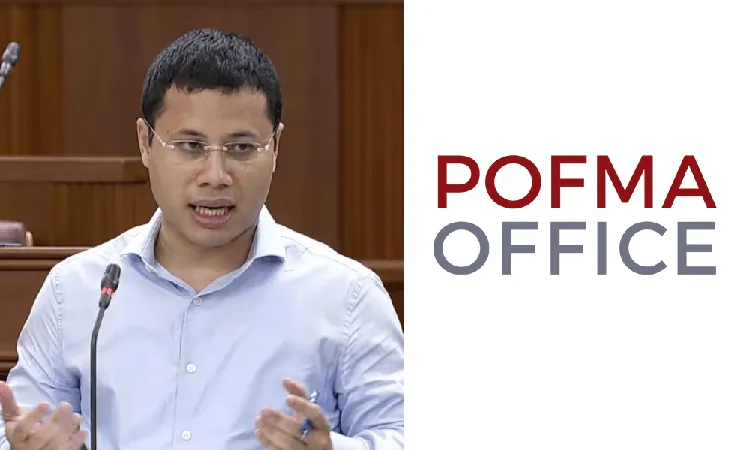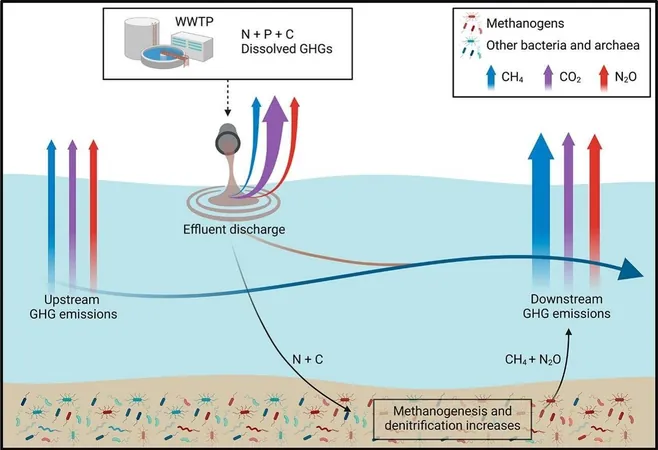
Double Standards in POFMA Enforcement? Questions Arise as Minister Desmond Lee Remains Silent
2024-09-17
Author: Siti
Double Standards in POFMA Enforcement?
The Protection from Online Falsehoods and Manipulation Act (POFMA) continues to provoke heated discussions, particularly surrounding the apparent inconsistencies in its enforcement by government officials. National Development Minister Desmond Lee's lack of response to numerous inquiries regarding the differential application of POFMA further fuels concerns over fairness and transparency in its implementation.
CNA Incident Raises Questions
This latest scrutiny into POFMA came to light following an incident involving Channel News Asia (CNA). On August 27, 2024, CNA published an article featuring Associate Professor Nicholas Sim, who inaccurately described the computation of sales proceeds for the Lease Buyback Scheme, citing "straight-line depreciation" as part of the calculation method. The Housing and Development Board (HDB) engaged directly with CNA, resulting in a correction on September 2, 2024, but notably without a corresponding POFMA correction direction issued.
Independent Media Faces POFMA Directives
Conversely, independent media organizations like TOC (The Online Citizen) have not received this same leeway. POFMA correction directives were promptly issued against TOC, along with individuals such as former Non-Constituency Member of Parliament Yee Jenn Jong and activist Leong Sze Hian for discussing related issues concerning housing policies. Yee's posts on social media criticizing the Ministry's political motivations in the Aljunied-Hougang Town Council saga resulted in a POFMA order just two days after he had made them. Similarly, Leong faced repercussions for discussing means-testing for housing grants, where he acknowledged income ceilings but was still accused of misleading statements.
Government's Response Raises Further Concerns
When pressed for clarification, the Ministry of National Development only directed TOC to the POFMA website, failing to address the critical question of why CNA was permitted to correct its article quietly whereas independent media faced immediate punitive measures. This discrepancy raises alarming questions about selective enforcement, particularly regarding the political implications of how POFMA directives are applied to state-supporting media versus independent outlets.
Public Concern and Trust Issues
The situation has generated significant concern among the public. Many are left wondering whether the law is genuinely aimed at curbing misinformation in the public interest, or if it's being wielded as a method to suppress dissent and shield state media from embarrassment. Despite assurances from Minister K Shanmugam, who was vocal during POFMA's introduction in 2019 about using the law objectively, the application of POFMA appears increasingly volatile and subjective, capable of being molded to fit specific narratives.
Implications Ahead of the 2025 General Election
With Minister Lee's recent increase in issuing POFMA orders, raising questions about his reputation and the political environment ahead of the upcoming General Election due by November 2025, he must consider how relentless enforcement could sour public opinion. Observers argue that if the perception persists that state media operates under one set of rules while independent voices face stricter scrutiny, it could undermine trust in the government’s commitment to fairness and freedom of the press.
Call for Accountability
As Singapore navigates these turbulent waters, it remains imperative that government leaders, especially in the context of POFMA, engage transparently with citizens. The ramifications of an uneven application of such a law extend beyond individual reputations—they touch on the core tenets of democracy and the public's right to engage in open discourse without fear of retaliation.
Scrutiny of POFMA's Application
The order in which subjects are covered and the outcomes of POFMA enforcement point to a potential bias that citizens must carefully scrutinize. As the narrative unfolds, the call for accountability within governmental practices and a just application of POFMA has never been clearer.


 Brasil (PT)
Brasil (PT)
 Canada (EN)
Canada (EN)
 Chile (ES)
Chile (ES)
 España (ES)
España (ES)
 France (FR)
France (FR)
 Hong Kong (EN)
Hong Kong (EN)
 Italia (IT)
Italia (IT)
 日本 (JA)
日本 (JA)
 Magyarország (HU)
Magyarország (HU)
 Norge (NO)
Norge (NO)
 Polska (PL)
Polska (PL)
 Schweiz (DE)
Schweiz (DE)
 Singapore (EN)
Singapore (EN)
 Sverige (SV)
Sverige (SV)
 Suomi (FI)
Suomi (FI)
 Türkiye (TR)
Türkiye (TR)